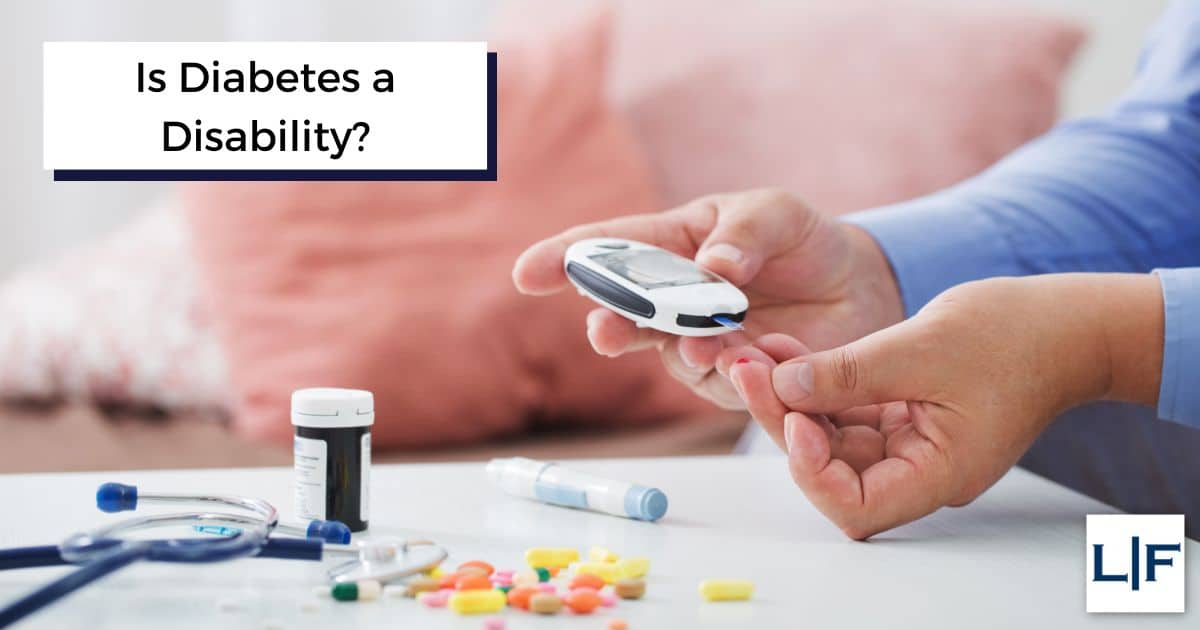The short answer to the question is yes, there are people who receive Social Security disability benefits for diabetes. However, they do not get disability just because they have been diagnosed with diabetes. And that makes sense because plenty of people who have diabetes work and lead pretty normal lives. According to the CDC, over 37 million people in the United States have diabetes. People who receive disability benefits due to diabetes generally receive it because their blood sugar was uncontrolled for some period of time and it caused damage to their body. The symptoms from the damage cause the person to be unable to work, and they qualify for disability.
Diabetes is a medical condition in which a person has too much glucose or sugar in their blood
In order to make energy, all of the body’s cells must get glucose from the circulatory system. The pancreas’s production of insulin helps the body absorb extra glucose. Inadequate insulin production results in elevated glucose levels in the blood. This suggests that either the insulin being produced is not functioning correctly in aiding the body’s absorption of glucose, or that the individual may be experiencing signs of diabetes or pre-diabetes.
Most people have Type II Diabetes, which usually starts in adulthood when insulin is not working as well as it should. Type I Diabetes usually starts in childhood and results when the pancreas does not make insulin. Women can also develop diabetes during pregnancy, which is called gestational diabetes. This type of diabetes usually goes away once the child is born.
There are many health risks associated with diabetes, particularly when it is uncontrolled. It can lead to several complications, such as high blood pressure, nerve damage, kidney disease, heart disease, blindness, and stroke. Long-term diabetics are also susceptible to limb amputation due to poor circulation, particularly when they have a wound that will not heal.
Is Diabetes a Disability?
The complications from diabetes may make it very difficult for someone to work on a regular basis. If you have severe symptoms, you may qualify for SSDI or Supplemental Security Income, if you are unable to keep a job due to your health problems.
Diabetic Neuropathy
One of the most common complications of uncontrolled diabetes is diabetic neuropathy. The nerves in the hands and feet are damaged, and you might feel pain, tingling, or even numbness if the neuropathy is really severe. The nerve damage may cause you to be unable to use your hands for things like buttoning your shirt or tying your shoes. You may lose your balance easily and need a cane to walk if your feet are numb.
Diabetic Retinopathy
Another complication of diabetes is diabetic retinopathy. This affects your vision and can permanently damage your eyesight. Diabetes can harm other organs, including your kidneys. If your kidneys fail, you will need dialysis. All of those complications can certainly affect your ability to work, and if they are bad enough, you may qualify for disability.
Proving Disability for Diabetes
If you are a diabetic and you are not taking your medication and you are not following your doctor’s instructions regarding your diet and exercise, it can make it harder for you to get approved for disability. If you have diabetes and it is uncontrolled, the first thing you need to do is talk to your doctor and try to get your blood sugar levels under control. Your symptoms may get better or go away entirely. But what if they don’t? Sometimes the damage from diabetes is permanent. If it is, then you may qualify for disability because the symptoms are still there and they prevent you from working.
It may be challenging to demonstrate a complete inability to work due to diabetes and its associated ailments in contrast to other disabling situations. Nevertheless, collaborating closely with your medical practitioners and a Social Security Disability lawyer can enhance the probability of a successful diabetes disability claim.
Related Posts

If I Get Disability Benefits Will My Family Also Get Money?
If you are approved for SSDI payments there may be additional money available to your minor children, your spouse, and your disabled adult children. When

Can Disabled Veterans Get Social Security Disability?
Disabled veterans may qualify for both Social Security disability benefits and veterans disability compensation. If you meet the separate requirements of each type of benefit,

How Long Can You Receive Social Security Disability Benefits?
You can receive disability benefits as long as you continue to be eligible. The eligibility rules are different for SSDI and SSI benefits.

Does My Spouse’s Income Affect Social Security Disability Benefits?
Yes, your spouse’s income may affect your Social Security disability benefits, although it depends on the type of benefit you receive.
Will I get Medicare or Medicaid benefits?
Medicaid and Medicare are medical benefits that come with a finding that you are disabled by the Social Security Administration. If you receive SSDI benefits,
Social Security Back pay
The Social Security disability application process can seem rather long and tiring. The Social Security Administration (SSA) receives roughly 2.5 million applications for disability benefits



